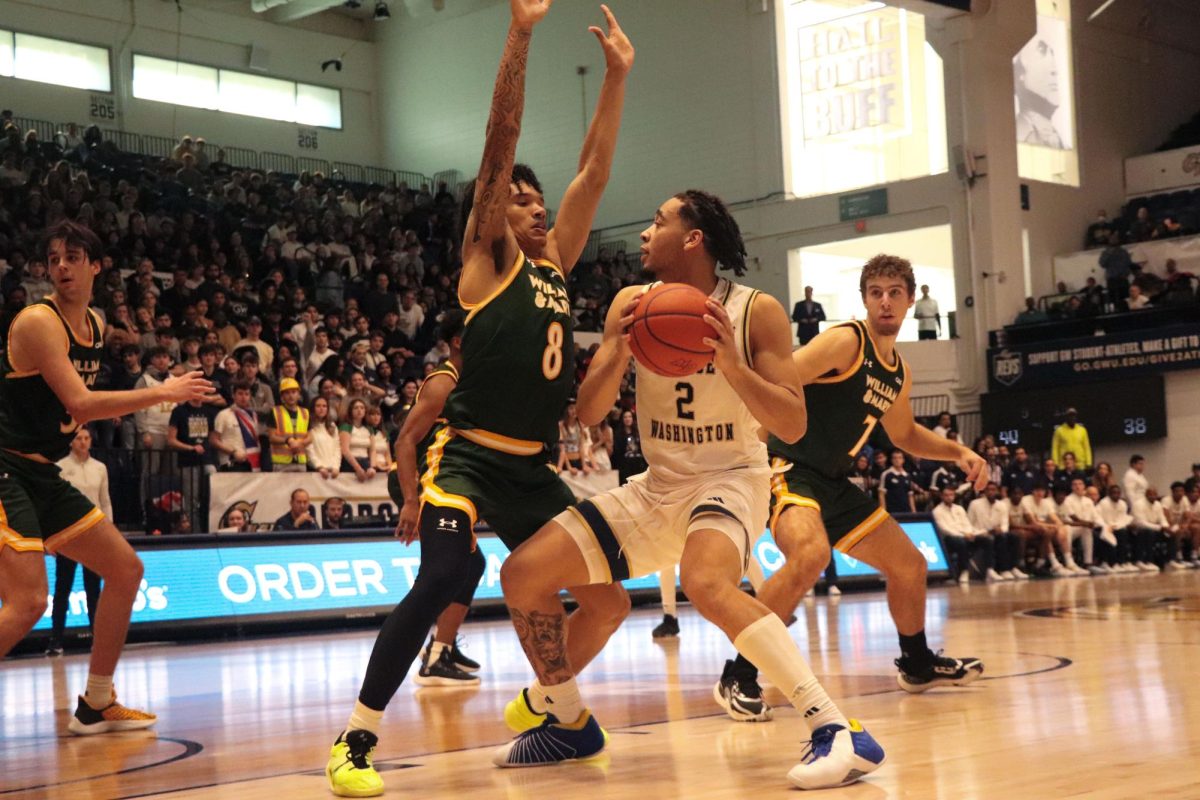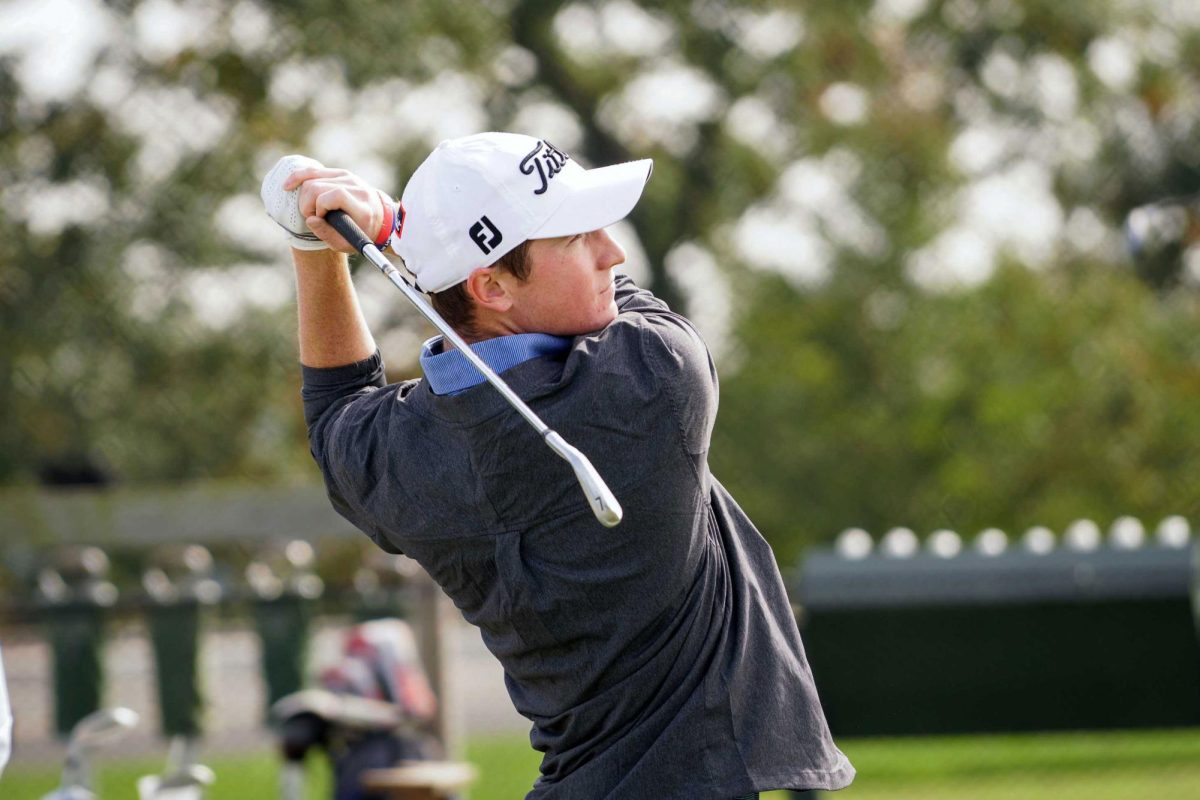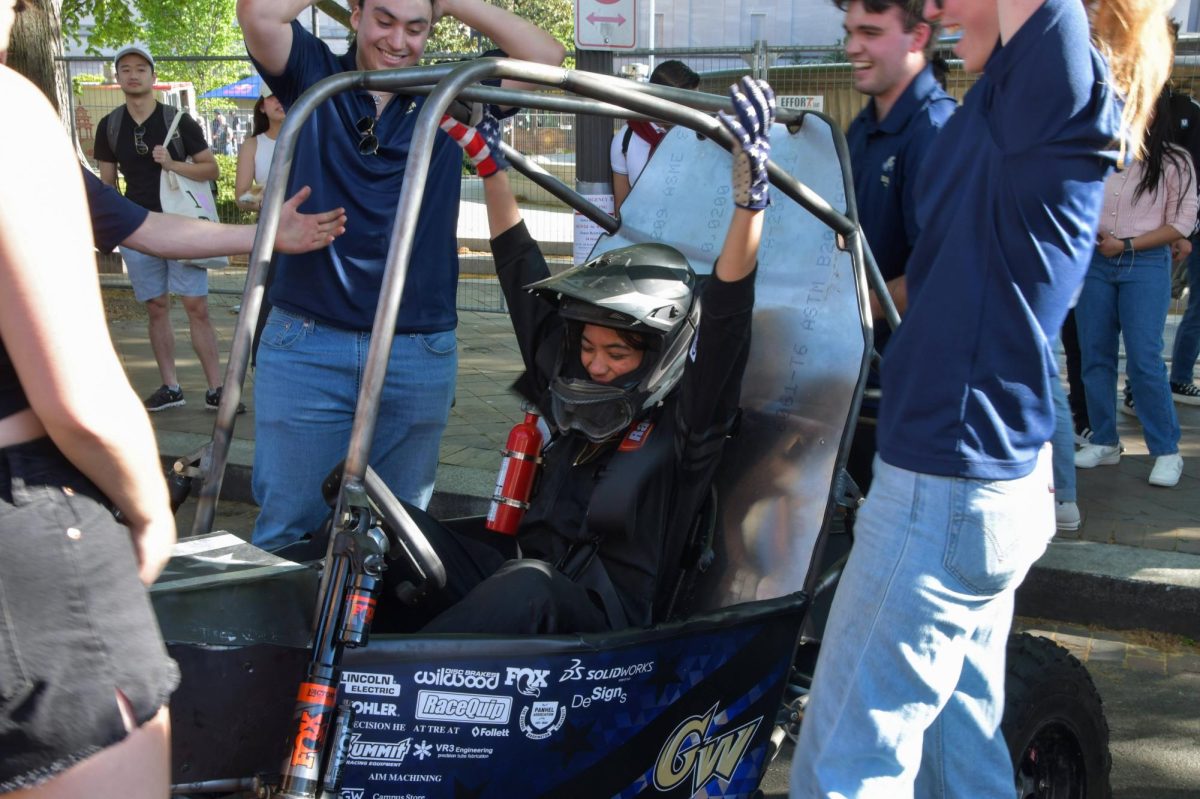Legislation to expand financial aid for student athletes was voted down at the NCAA Division I Board of Directors meeting Jan. 14 amid complaints that it could foster unfair recruitment practices.
The proposal would have allowed universities to offer athletes receiving full scholarships up to $2,000 in additional institutional financial aid, a move designed to cover cost-of-living expenses. Another proposal under consideration would have opened the door for multi-year scholarship offers, an option GW’s top athletic official said doesn’t best represent the University’s current athletics aid policy.
Athletic director Patrick Nero, who originally supported the $2,000 aid legislation, voted against it last week because he felt an additional stipulation added to the measures didn’t align with the financial interests of the University.
The additional provision tacked onto the legislation proposed pulling need-based and academic awards out of the athletic aid pool, instead of the current model, which stipulates that any aid given to a student-athlete is counted as a part of the athletics-specific aid pot. As the board asked that the legislation be returned for modification, it is currently rendered moot.
Nero and Associate Athletic Director of NCAA Compliance Chandra Bierwirth added that many universities, including GW, anticipating that the legislation would be passed, included it as a term in fall recruit award agreements. Going forward, the additional $2,000 will not be a part of recruit signings, but the prior agreements will be honored.
The addition to the legislation drew fears that universities with more expendable resources could potentially have a recruiting advantage because other forms of aid would no longer count towards a certain sports team’s aid equivalencies, Bierwirth said. Universities with the means to offer significant aid through various pools, such as athletics aid and academic aid, could potentially recruit more athletes than universities with less financial means. USA Today reported Jan. 14 that 160 schools objected to the proposal – enough for the board to halt its implementation.
“There was pushback indicating that there may be stockpiling of athletes. You would be able to bring a kid in, give them a little bit of athletics aid, and package them with other need-based and/or institutional aid and only the athletics aid would be countable,” Bierwirth said. “Even if you gave them a little bit of athletic money, whereas before, you wouldn’t be able to take them because they’d overextend their equivalencies in that sport.”
Issues also arose concerning how to implement the new legislation so that it would fall in line with Title IX, mainly among schools with football programs, which would be challenged to find women’s sports that would provide equal allocations for the money as their male counterparts.
“Member schools expressed concerns about the miscellaneous expense allowance, including student-athlete financial need, Title IX compliance and the potential for stockpiling by universities through the override process, which is a part of the of the NCAA’s overall legislative process,” NCAA representative Emily Potter said.
Some schools expressed concerned about funding extra aid to athletes, but Nero said GW wasn’t among the universities who anticipated difficulty.
“In the Atlantic 10, we voted to [approve the additional $2,000 stipend] for men’s and women’s basketball as everyone would, and other sports it would be institutionally decided or team decided,” Nero said.
The stipends for those teams – which would total around $60,000 – wouldn’t make a significant dent in GW’s internal scholarship fund.
Nero was not in favor of was the proposal to allow universities to allow multiyear athletics scholarships. Currently, athletics scholarships are awarded on a one-year, renewable basis. Concerns over misuse of the scholarship process, and improper withholding of aid based on athletic performance, led to the multi-year proposal.
It’s a proposal that doesn’t make sense for GW to support given its history and process with renewing and taking away aid awards, Nero said. Should the University choose to revoke an athlete’s scholarship, that student-athlete has the opportunity to appeal the decision before a committee comprised of non-athletics department University figures. That safeguard, Nero said, is why he feels multiyear scholarships are unnecessary.
“We have always had the general policy that if the kid does everything they’re supposed to, both in the classroom and on the field, they would get renewed,” Bierwirth said. “They may not be your top scorer, but you can’t take their aid. That doesn’t happen at a lot of schools.”







